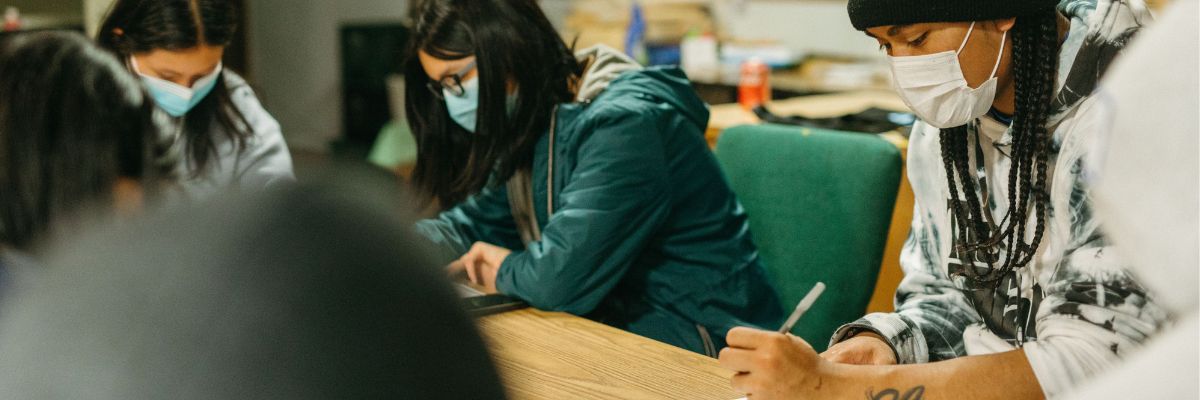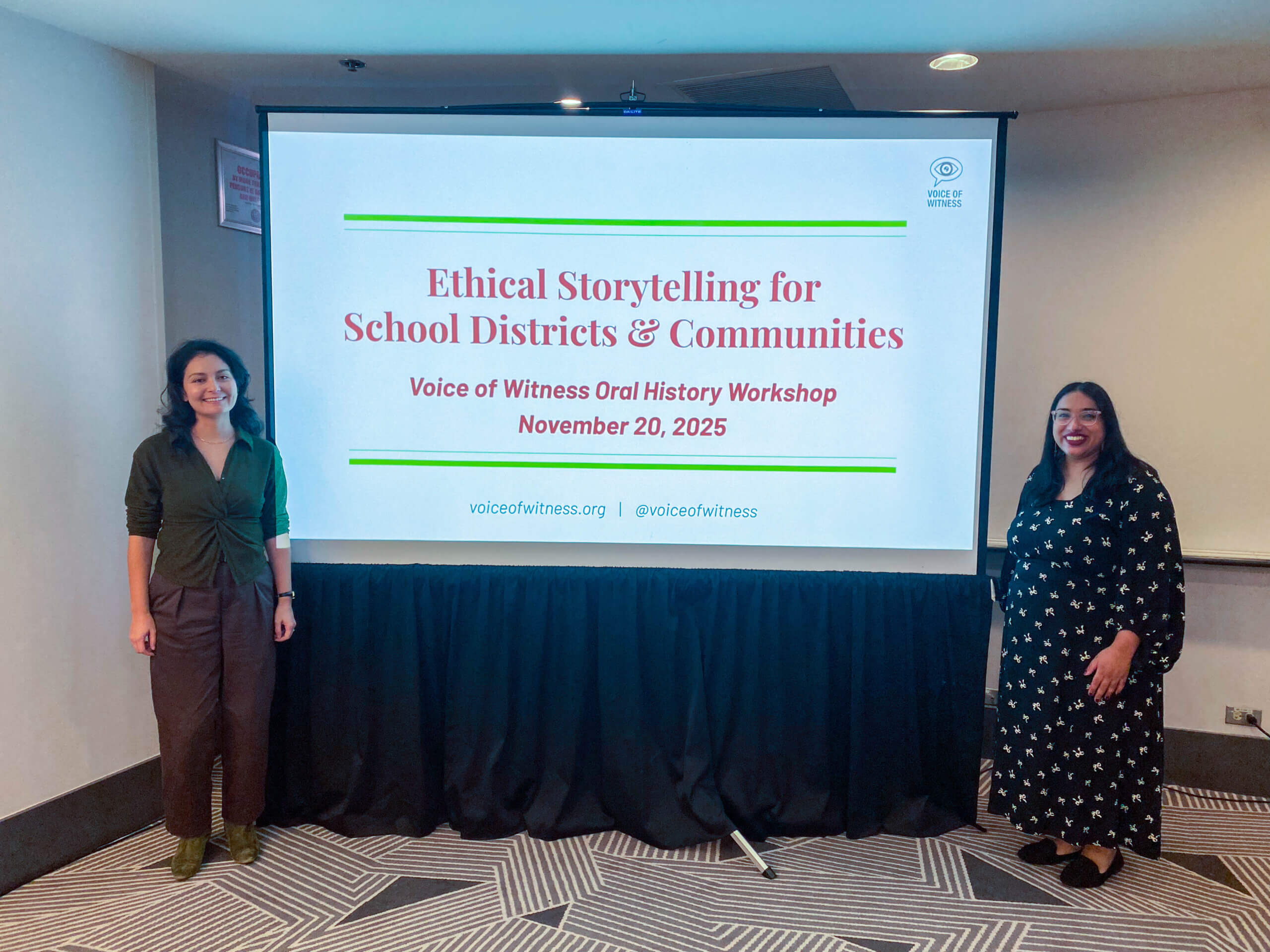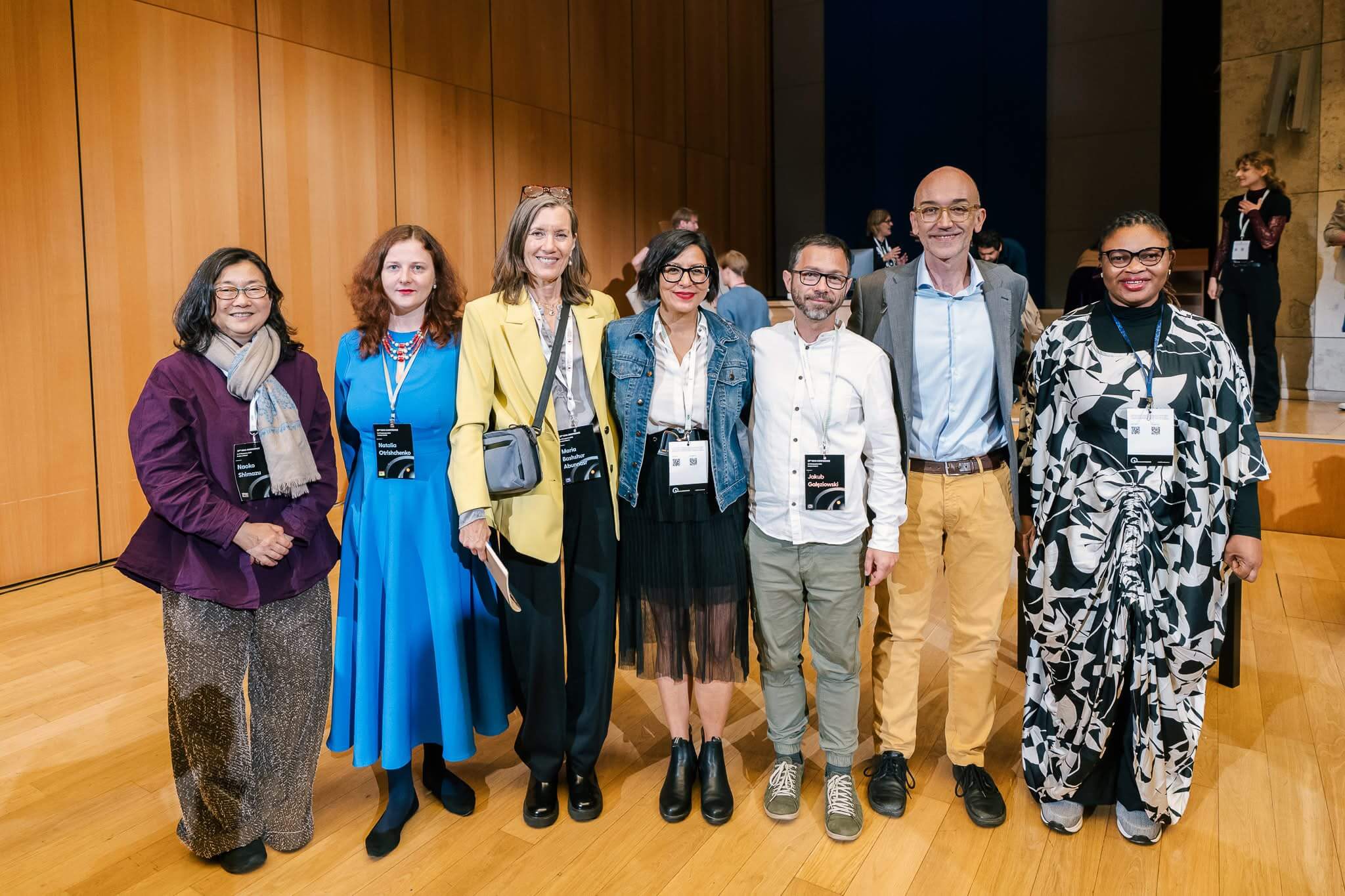
The education program at Voice of Witness aligns with the pedagogical goals of Ethnic Studies courses by centering the voices of marginalized communities in the classroom and equipping students with the tools to critique dominant ideologies.
VOW creates course materials around oral history narratives, using lived experiences to explore social justice and human rights issues. Studying oral histories as classroom texts encourages students to question the “objectivity” of historical and modern narratives, reflect on whose perspectives are included and whose are missing, and understand current events through a personal lens.
VOW’s human rights oral history book series, which amplifies the voices of people experiencing and fighting against injustice, aligns with many key themes in an Ethnic Studies course, including: place and identity, power and oppression, and community resources and cultural wealth. Additionally, each corresponding free VOW lesson plan is developed in partnership with narrators, using a culturally responsive, trauma-informed approach that is central to Ethnic Studies pedagogy.
VOW is striving to make these themes and connections more explicit for educators, and we have updated the curricula for our three latest projects accordingly:
- Mi María: Surviving the Storm, Voices from Puerto Rico
- How We Go Home: Voices from Indigenous North America
- Solito, Solita: Crossing Borders with Youth Refugees from Central America
In these free lesson plans, educators will now be able to find a curriculum map that lays out Ethnic Studies-aligned topics for each lesson. Every lesson also includes a brief summary that connects the day’s learning objective with larger Ethnic Studies themes. We hope that these updates will assist educators in using our lessons to support a unit theme or to build a yearlong scope and sequence.
Stay tuned for similar Ethnic Studies-aligned updates to the curricula for the rest of our human rights oral history books in the upcoming months.




